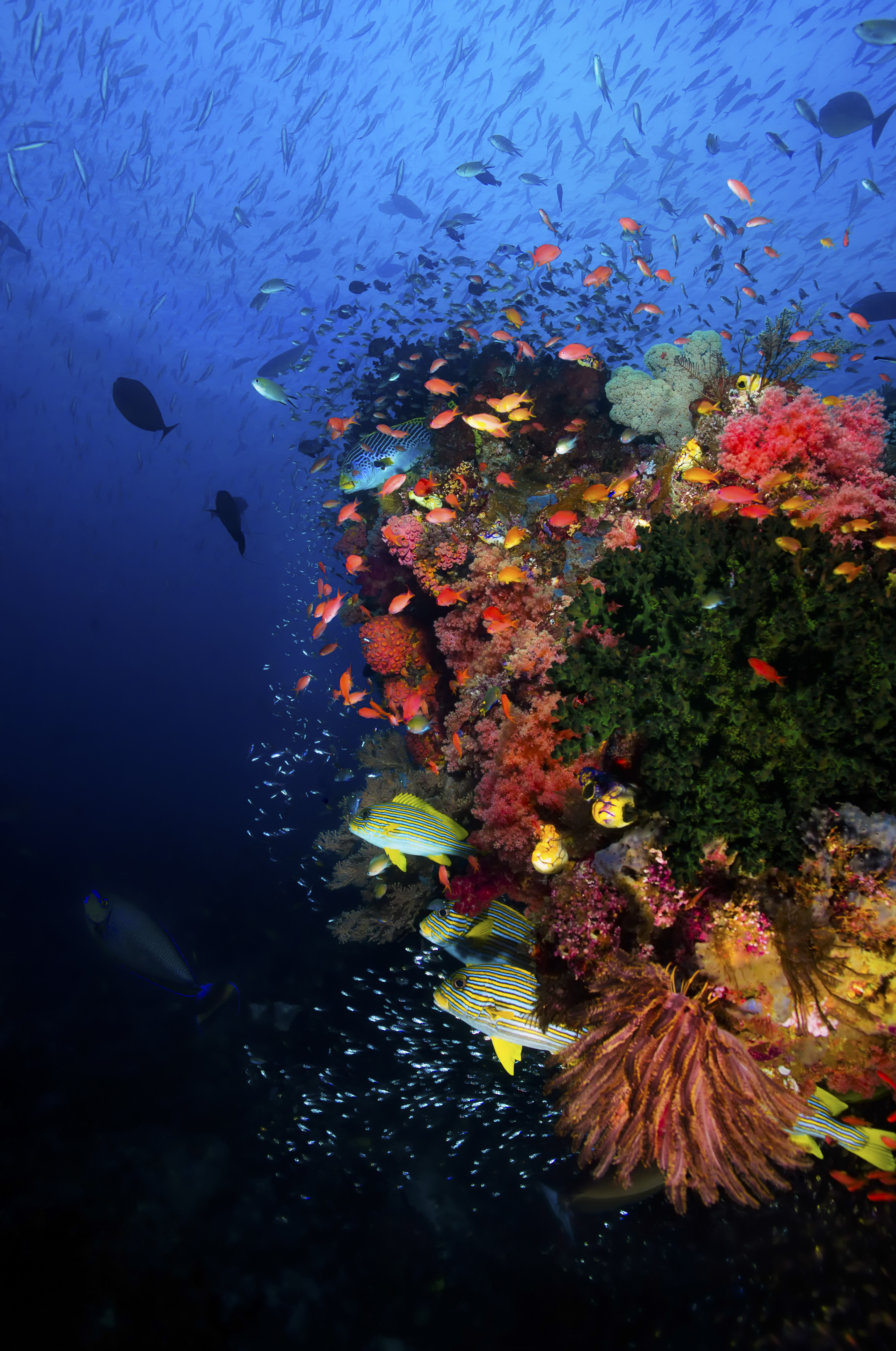Case studies
We lead and take part in many national and international projects regarding marine climate change. Here below are a few case studies highlighting just some of the work that we have been involved in.
Towards Net Zero Carbon Fisheries
At present, carbon emissions by UK fishing vessels are still substantial and therefore achieving net zero carbon emissions will require major changes to UK fisheries. This project, funded by Defra, determined current levels of total carbon emissions and recent trends for the UK fishing fleet, including comparison of gear types, to produce a roadmap of potential pathways to reduce emissions. Pathways comprise technological, behavioural and managerial options for the short and long term, and these options were examined critically as part of an industry stakeholders workshop.
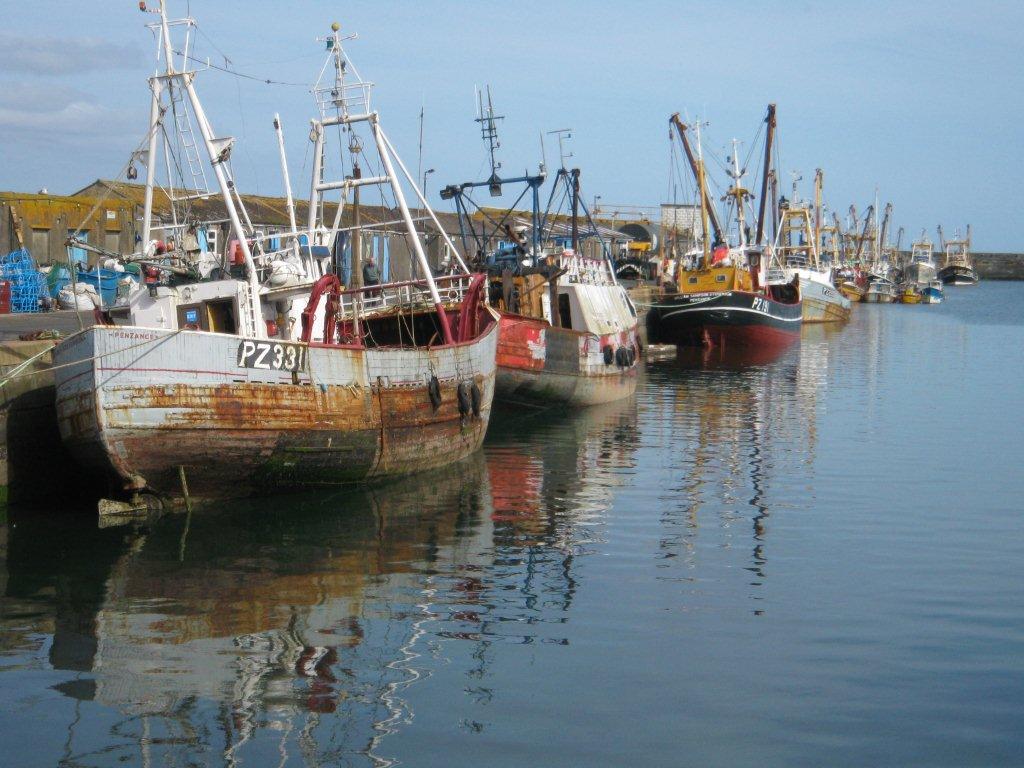
AFST South, Image by Ross Jolliffe, Cefas
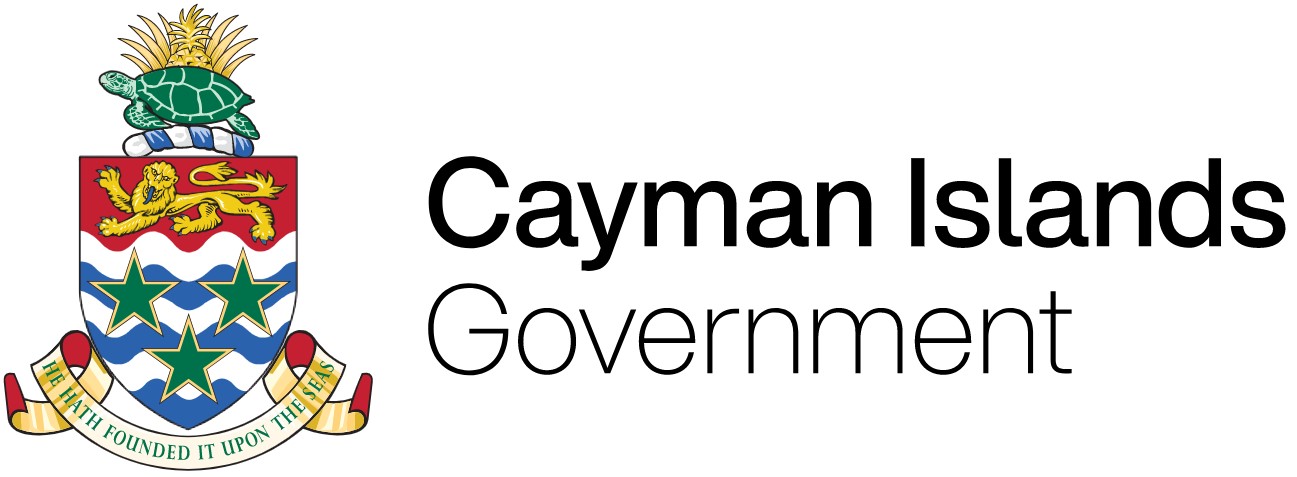
Cayman Islands Climate Change Risk Assessment
In 2021, the Cayman Islands Government in partnership with Cefas and the UK Centre for Ecology and Hydrology, launched one of the most comprehensive assessments of the climate change risks and opportunities facing these islands to date. The Cayman Islands Climate Change Risk Assessment and the Cayman Islands Climate Change Evidence Report involved the participation of stakeholders representing the islands’ public and private organisations. The findings will provide an important evidence base for updating the Cayman Island’s National Climate Change Policy, a 5-year plan aimed at tackling and adapting to the impacts of climate change.
ROPME - Regional Organisation for the Protection of the Marine Environment
We have been working with ROPME in the Middle East to support in the development of a Climate Change Strategy for the ROPME sea region. This three year work programme involves the production of a climate impacts evidence report, a climate change risk assessment for the region, and identifying adaptation options for key sectors.
Outputs from our partnership include:
- ROPME Climate Change Risk Assessment Technical Report
- ROPME Blue Carbon Inventory Technical Report
- ROPME Climate Change Impacts Evidence Technical Report
- ROPME Climate Change Impacts Policy Brief
- ROPME Blue Carbon Habitats Policy Brief
All these reports can be found in the ROPME online portal, here.
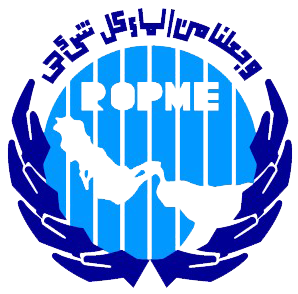
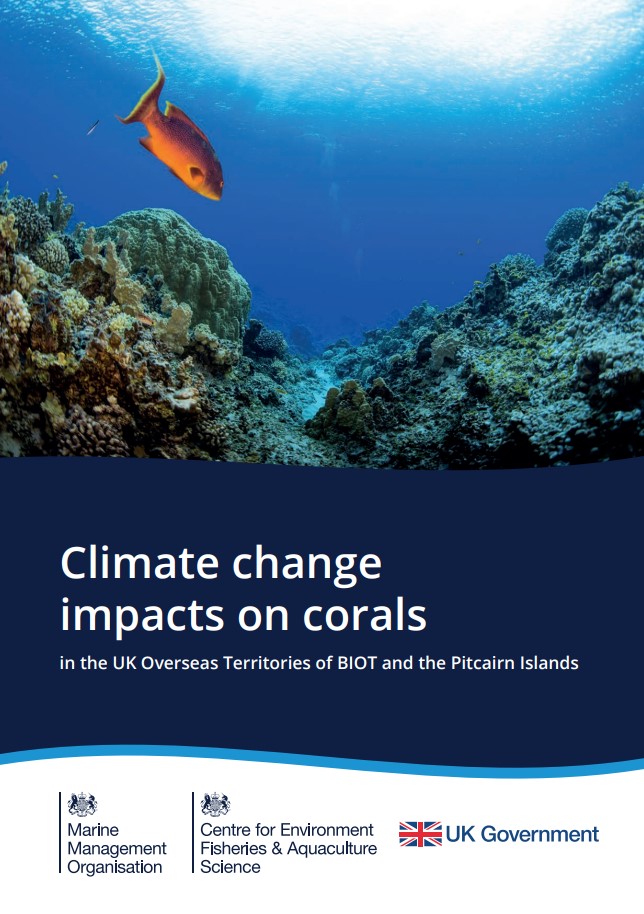
Blue Belt Programme - Climate change impacts on corals in BIOT and the Pitcairn Islands
We undertook a review of the latest scientific information on current and future drivers of climate change in the marine and coastal environments of the Pitcairn Islands and the British Indian Ocean Territory (BIOT), to understand the risks to the coral reefs of these UK Overseas Territories, as well as other important marine life.
We produced a full review report, and a summary card that allows the information to be easily interpreted for the purposes of policy and decision making involved in the management and protection of the unique marine environment of these territories.
Vulnerability to storm surge inundation in Grenada’s coastal zone
Communities in Small Island Developing States are especially vulnerable to the negative impacts of climate change, with major infrastructure and developments concentrated in low-lying coastal areas often at greatest risk. Under the Commonwealth Marine Economies programme, during 2017-2019 we conducted an integrated assessment of coastal vulnerability to storm surge inundation in the Caribbean State of Grenada, arising from increasingly powerful hurricanes and sea level rise predicted under climate change. We combined wave modelling with detailed information on natural and man-made coastal features and historic hurricane events, to estimate likely effects of future hurricanes on communities and infrastructure supporting critical economic activity on the islands.
Our assessment indicated increasing potential for disruption, with higher damage costs, under future climate conditions. Our findings are assisting local governments, in the Caribbean and other regions, with decision-making and disaster planning to reduce risk and aid resilience in vulnerable coastal areas.
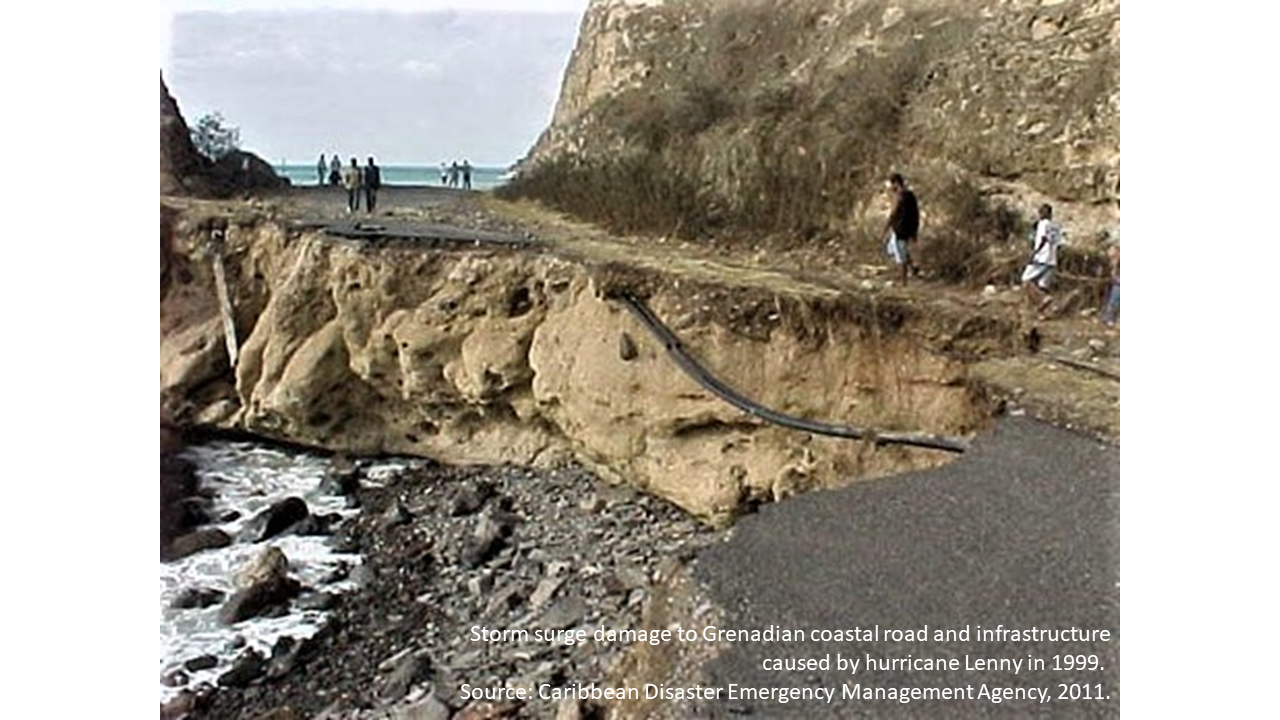

The EMODNET Atlantic checkpoint was a monitoring system assessment activity aiming to support the sustainable Blue Growth at the scale of the North Atlantic Ocean. The project aimed to clarify the observation landscape, evaluate the fitness for use of current observations and data assembly programs towards targeted applications (challenges) and prioritize the needs to optimize monitoring systems in terms of availability, operational reliability, efficiency, time consistency, space consistency, etc. and observational priorities required in the future to meet these challenges.
Commonwealth Marine Economies Programme – Seagrass and blue carbon in Vanuatu, South Pacific
During 2017 and 2018, we have been working in the island of Efate, Vanuatu, studying seagrasses as part of an overarching water quality and habitat resilience programme for Vanuatu. We have examined the health and diversity of seagrasses, and their capacity to store carbon, and how this is linked to water quality and characteristics of the sediment. To our knowledge these are the first measurements of carbon stored by seagrass in Vanuatu. This work provides crucial understanding about these habitats, the threats they face and contributes vital data to blue carbon research worldwide in addition to providing a baseline for future work.
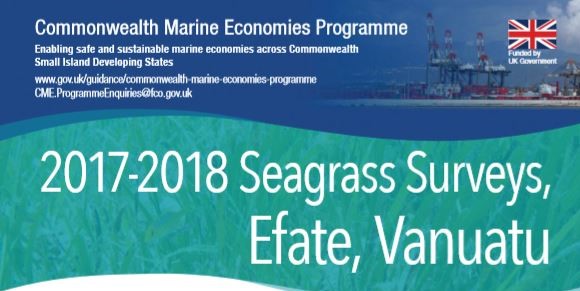

PLACID – Placing Ocean Acidification in a Wider Fisheries Context
This project explored the effects of ocean acidification (OA) upon commercially important marine species including crabs, whelks, lobsters and cockles. Outputs from the project include: (1) new understanding of OA effects on shellfish fisheries, including economic consequences and magnitudes; (2) new information via experiments to investigate the effects of environmental co-stressors (temperature, increased pCO2, food levels) on shellfish species; (3) modelling studies that make use of this experimental evidence to ‘scale up’ to population or ecosystem level effects; (4) New in-situ and underway monitoring data providing spatial and temporal variability data of pH in waters around the UK.
Commonwealth Marine Economics Programme 2016-2022
The CME programme was aimed to supporting the sustainable growth of Commonwealth Small Island Developing States (SIDS) within the Caribbean Sea, and the Pacific and Indian Oceans. We reviewed the current scientific evidence base on climate impacts in the Pacific and Caribbean regions, and produced report cards summarising the main review findings. We also developed sector-specific report cards for climate adaptation in Caribbean fisheries, and also specifically for Grenada. These report cards are brief and easy to read, summarise the latest knowledge about marine and coastal climate change impacts on these regions, and recommend adaptation actions that can be taken.
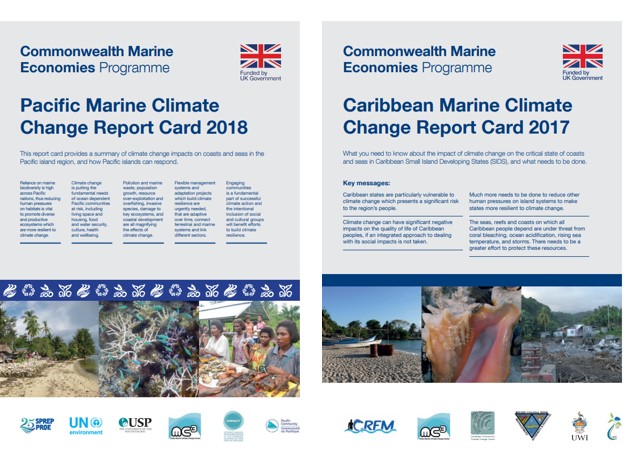
Pacific and Caribbean Report Cards

CERES – Climate Change and European aquatic Resources
We have been involved in this ongoing EU Horizon 2020 project which aims to take a cause-and-effect understanding of how climate change will influence Europe’s most important fish and shellfish resources and the economic activities depending on them. It aims to provide tools and develop adaptive strategies allowing fisheries and aquaculture sectors to anticipate and prepare for potential impacts. Our work so far has included developing socio-political scenarios for fisheries and aquaculture sectors, modelling future distributions of key commercial fish species, mapping future climate-driven disease risk to aquaculture species, and assessing the relative vulnerability of fishing communities to future climate change.
